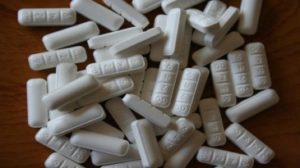 If you find yourself wondering- what is drug detox, what distinguishes detoxification from other areas of addiction treatment is that detox specifically focuses on the intervening period of withdrawal in a case of physical dependence to a drug. In order to receive proper treatment and counseling, all the drug’s toxins must be safely removed from your body. During this period, the body is expelling the dangerous elements that the last doses of the drug brought. This is a process best completed in a location where clinicians can evaluate the addiction and help the user through withdrawal, treating symptoms as necessary.
If you find yourself wondering- what is drug detox, what distinguishes detoxification from other areas of addiction treatment is that detox specifically focuses on the intervening period of withdrawal in a case of physical dependence to a drug. In order to receive proper treatment and counseling, all the drug’s toxins must be safely removed from your body. During this period, the body is expelling the dangerous elements that the last doses of the drug brought. This is a process best completed in a location where clinicians can evaluate the addiction and help the user through withdrawal, treating symptoms as necessary.
What Is Drug Detox Like?
If we were to compare addiction treatment to a major surgery, like hip replacement, detox would be like the period spent in an Intensive Care Unit immediately following the operation. You would eventually be moved to a room which would have the feel of a short term residence where you will learn and likely begin physical therapy. When the time comes, you would be released home to continue physical therapy on your own. Drug detox must be completed before the rehabilitation process can begin. What is defining about drug detox is that the focus is primarily your health and well-being for the first few days without substances. Physical dependence can overwhelm the body if you were to suddenly stop, and it’s not recommended to try and detox on your own. It’s important to have someone present who can transport you to the hospital, or assist should you need medical attention. Detox programs also protect your privacy. When an individual detoxes from a drug, they can exhibit behaviors they might not want their family or friends to have to see. Therefore, an established detox program will offer this privacy for their patients.
What Is The Difference For Alcohol Detox?
If wondering what is alcohol detox and how it varies from drug detox, the two are similar in that they treat symptoms of withdrawal before entering rehab. Like an ICU, detox will sometimes have many different patients who are withdrawing from various addictive substances. While the disease of addiction will unite patients in recovery, what’s different are the withdrawal symptoms experienced and the medication which will be used to treat those symptoms. The United States Department of Health and Human Services acknowledges three general steps in a drug detoxification process: Evaluation, Stabilization and Guiding the Patient into Treatment. Clinicians evaluate the physical health of each client, and also determine if there are co-occurring disorders to be aware of. Stabilization is the process spent readjusting the body to operating without substances. This is a necessary step because treatment will involve addressing various psychological aspects of addiction, requiring participation and clarity. Every individual is different and so lengths of time can vary. While it can be a daunting process, if there is a sincere desire to change addictive behavior, it’s a healing first step in beginning a better life in recovery.

